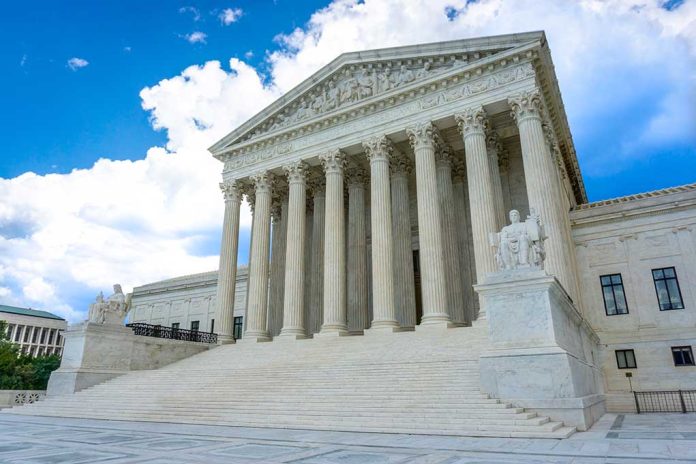
Mark Zuckerberg’s admission of Meta’s involvement in federal censorship exposes a growing threat to free speech and raises concerns about government overreach.
Key Takeaways
- Mark Zuckerberg admitted Meta’s participation in government-driven censorship, particularly regarding Covid-19 content.
- The Supreme Court dismissed a case highlighting government coercion of social media companies on technical grounds.
- Justice Samuel Alito criticized the court’s decision, warning of potential consequences for free speech.
- The case exposed a “censorship-industrial complex” involving government collusion with social media platforms.
- Concerns are mounting about the need for legislative and executive action to protect First Amendment rights.
Zuckerberg’s Revelation and the Supreme Court’s Inaction
Meta CEO Mark Zuckerberg acknowledged his company’s involvement in federal censorship efforts, particularly concerning Covid-19 content. This revelation has brought to the forefront the ongoing tension between social media platforms and government attempts to regulate online speech. Zuckerberg’s statement not only confirms suspicions of government overreach but also raises serious questions about the legality of such pressure on private companies.
The Supreme Court case Murthy v. Missouri had initially shed light on this issue, exposing what some have termed a “censorship-industrial complex.” The case presented evidence of government collusion with social media companies to suppress certain speech, which plaintiffs argued was a clear violation of the First Amendment. Despite the gravity of these allegations, the Supreme Court chose to dismiss the case on technical grounds, citing a lack of standing.
Following Mark Zuckerberg’s putative mea culpa for having made Meta complicit in the largest censorship regime in American history, and his vow to restore free expression on his platforms, the CEO made perhaps his most consequential statement of all in an interview with Joe… pic.twitter.com/sVo4ebxxtS
— Benjamin Weingarten (@bhweingarten) January 22, 2025
Dissent and Warnings from Justice Alito
Justice Samuel Alito’s dissenting opinion in the Murthy v. Missouri case stands as a stark warning against the court’s decision to sidestep this crucial free speech issue. Alito criticized his colleagues for shirking their duty to address the constitutional questions at hand, arguing that their inaction could set a dangerous precedent for future government interference with free expression. “We are obligated to tackle the free speech issue that the case presents,” Justice Samuel Alito stated, adding, “The Court, however, shirks that duty and thus permits the successful campaign of coercion in this case to stand as an attractive model for future officials who want to control what the people say, hear, and think.”
Alito’s words underscore the potential long-term consequences of the court’s decision, suggesting that it may embolden government officials to continue pressuring social media companies to censor content they deem problematic. This judicial reluctance to confront potential governmental overextension has left many concerned about the future of free speech in the digital age.
The Path Forward: Legislative and Executive Action
With the courts seemingly unwilling to take a strong stance on this issue, attention is now turning to other branches of government for solutions. Some Republicans in Congress, along with the Trump administration, have expressed plans to dismantle what they view as a censorship-industrial complex. These efforts reflect a growing recognition that legislative and executive action may be necessary to safeguard First Amendment rights in the face of technological and governmental challenges.



